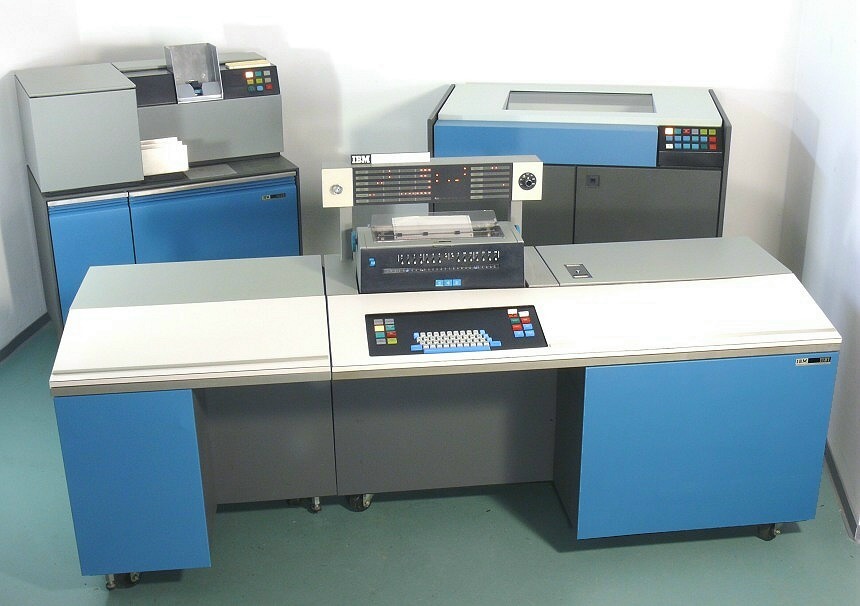IBM 1130



The IBM 1130 was a testbed for the first graphical user interface (Alan Kay, The Reactive Engine, Ph.D. Thesis, University of Utah, 1969). At Columbia University, 1130s were installed in Watson Lab, Teachers College, and Lamont-Doherty Geological Observatory. The 1130s at TC and Lamont were connected with the Columbia mainframes as RJE stations. The Lamont connection was probably the first instance of long-haul computer networking at Columbia (December 1969).
Updated 13 March 2021: HTML5, fluidity, links, new images.
Offsite Links (verified 13 March 2021):
- IBM 1130 Announcement
- IBM1130.Org
- IBM1130.Net (Howard Shubs)
- IBM 1130 Overview (Ed Thelen)
- IBM 1130 Computing System, technikum29 Living Museum, accessed 13 March 2021.
- Forum IBM 1130 (Jacques Pain) (It lives!)
- Color photo, front (50 Ans Informatique Grenoble, Nov-Dec 2002)
- Color photo, control panel (Grenoble)
- Color photo, back (Grenoble)
- Photo with 2314 Disk Cartridges (EXPO '70)
- Photo of 1130 with paper tape units (University of Newcastle)
- Informática UFRGS photos (Brasil)
- The Reactive Engine (Alan Kay, 1969).